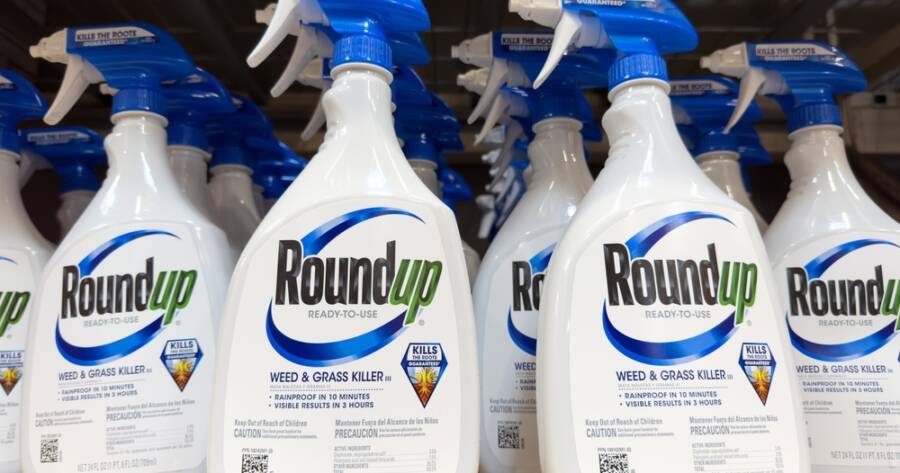Roundup, a widely used herbicide produced by Monsanto (now owned by Bayer), has been a go-to solution for eliminating weeds in residential lawns, agricultural fields, and public spaces for decades. However, its active ingredient, glyphosate, has recently come under intense scrutiny, with mounting evidence suggesting a link between glyphosate exposure and certain types of cancer, particularly non-Hodgkin’s lymphoma. As a result, thousands of lawsuits have been filed by individuals claiming that their cancer diagnoses were caused by exposure to Roundup.
What Is Roundup and Why Is It Controversial?
Roundup is a herbicide used to kill weeds and unwanted plants, particularly in agriculture, gardening, and landscaping. Its primary ingredient, glyphosate, works by disrupting the production of certain enzymes in plants, causing them to die. Glyphosate became the world’s most widely used herbicide after it was introduced in the 1970s.
However, over the past decade, scientific studies have raised concerns about glyphosate’s potential health risks to humans. In 2015, the World Health Organization (WHO) declared glyphosate as “probably carcinogenic to humans” based on evidence suggesting a link between glyphosate exposure and non-Hodgkin’s lymphoma, a type of cancer that affects the lymphatic system. This conclusion was followed by a series of lawsuits filed against Monsanto, alleging that the company had failed to warn consumers about the cancer risks associated with Roundup.
The Link Between Roundup and Cancer
Numerous studies and legal cases have highlighted the potential connection between glyphosate exposure and cancer, particularly non-Hodgkin’s lymphoma (NHL). Non-Hodgkin’s lymphoma is a cancer of the lymphatic system, and its symptoms include swollen lymph nodes, unexplained weight loss, fatigue, and frequent infections.
The legal argument in many Roundup lawsuits centers around the claim that Monsanto (and later Bayer) was aware of the potential cancer risks associated with glyphosate but failed to adequately warn consumers. Internal documents and testimonies have suggested that Monsanto knew about the potential dangers of Roundup long before the public was made aware.
Several high-profile trials have resulted in substantial verdicts in favor of plaintiffs, including a landmark case in 2018 where a California jury awarded $289 million in damages to a man who developed non-Hodgkin’s lymphoma after years of using Roundup. Since then, thousands of lawsuits have been filed, and more legal battles are ongoing.
Do You Have a Case?
If you have been diagnosed with non-Hodgkin’s lymphoma or another type of cancer and have a history of using Roundup or other glyphosate-based herbicides, you may have grounds to file a lawsuit. To determine if you are eligible, several factors need to be considered:
- History of Roundup Use: The most critical factor is whether you or a loved one used Roundup for a significant period. Regular exposure to glyphosate, especially for individuals who used the herbicide professionally (such as landscapers, farmers, or groundskeepers), may increase the likelihood of a link to cancer.
- Cancer Diagnosis: Non-Hodgkin’s lymphoma is the cancer most commonly associated with Roundup exposure, but other types of cancer may also be involved. If you have been diagnosed with any cancer and have a history of using Roundup, it’s essential to consult with a legal professional.
- Timeline of Exposure: The duration and frequency of Roundup use are important considerations. Chronic exposure to glyphosate-based products is more likely to result in health issues than short-term use.
Legal Rights and Compensation
If you believe your cancer diagnosis is related to Roundup exposure, you may be entitled to compensation. Legal actions against Monsanto/Bayer often seek compensation for medical bills, lost wages, pain and suffering, and punitive damages. There are a few steps to take:
- Consult a Lawyer: It’s crucial to seek legal advice from a lawyer who specializes in product liability or toxic tort cases. They can help assess the strength of your case and guide you through the legal process.
- Evidence Collection: Keep records of your diagnosis, treatments, and any Roundup usage. Testimonies from medical professionals linking your cancer to Roundup exposure will be essential in proving your case.
- Class-Action Lawsuit vs. Individual Lawsuit: In some cases, individuals may join a class-action lawsuit, which allows multiple people to file claims under one case. Alternatively, you can pursue an individual lawsuit if you believe your case is unique or requires a different legal approach.
What to Expect in the Lawsuit Process
Filing a Roundup lawsuit can take time, as it involves legal research, evidence collection, and negotiation. Many cases have been settled out of court, but others may go to trial. It’s important to be patient and work closely with your attorney throughout the process.
While settlements can provide quick financial relief, a successful trial may result in larger compensation awards. In many cases, damages are awarded not only for medical expenses but also for the suffering and loss of quality of life caused by the illness.
Understanding Your Legal Rights in Roundup Cancer Lawsuits
If you have been diagnosed with cancer and have used Roundup or other glyphosate-based herbicides, you may have a legal right to compensation. The ongoing Roundup lawsuits highlight the potential health risks associated with glyphosate exposure, especially for those who have developed non-Hodgkin’s lymphoma. Understanding your legal rights and seeking expert legal counsel can help you navigate the complex process of filing a lawsuit and potentially securing compensation for your suffering. Remember, it’s essential to act quickly as there may be deadlines for filing claims in your state. Consult with a qualified attorney to evaluate your case and explore your options for seeking justice.
